ICAM Advisory Council

David G. Beer
Professor of Surgery, Section of Thoracic Surgery, Professor of Radiation Oncology
Ph.D.

Terri Bollinger
Trauma Burn Unit, University of Michigan Health System (UMHS), ICAM
R.N.

Edward Brown
Data Scientist, ICAM/MAG

Douglas P. Campbell

Paul Cederna
Robert Oneal Professor of Plastic Surgery, Chief of the Section of Plastic Surgery, and Professor in the Department of Biomedical Engineering, University of Michigan
M.D.
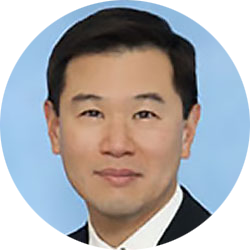
Andrew Chang
John Alexander Distinguished Professor; Associate Professor & Head, Section of Thoracic Surgery, University of Michigan
M.D.
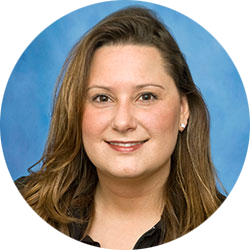
Jill Cherry-Bukowiec
Assistant Professor of Surgery, University of Michigan
M.D.

Sung Won Choi
Assistant Professor, Pediatrics, University of Michigan
M.D.
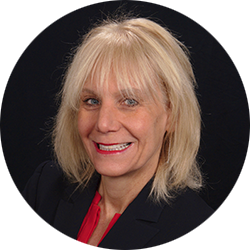
Suzanne Cole
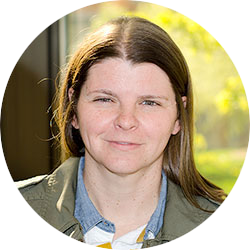
Missy Crain-Polly
Crash Investigator, ICAM

Kristen Cunningham
Technical Project Manager, ICAM
MPA

Brian Derstine
Data Scientist, Morphomics Analysis Group
M.S.

Junia Doan
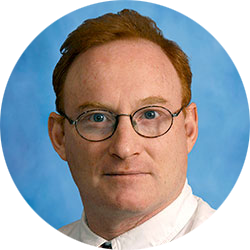
Peter F. Ehrlich
Associate Professor, Pediatric Surgery, University of Michigan
M.D.

Susumu Ejima
Research Associate Professor, University of Michigan
Ph.D.

Binu Enchakalody
Research Software Engineer, MAG
M.S.

Anne Fast
Level E Clinical Nurse, Michigan State Burn Coordination Center, University of Michigan Hospital, Trauma Burn Unit
R.N.
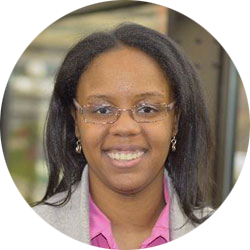
Brianna Henderson
Research Area Specialist Associate, Pediatric Surgery
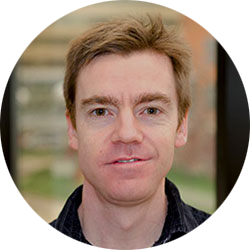
Sven Holcombe
Crash Safety Engineer, ICAM/MAG
M.S.
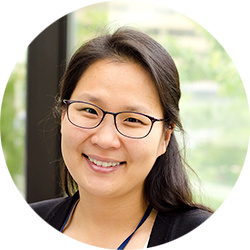
Eunjoo Hwang
Research Specialist, ICAM/MAG
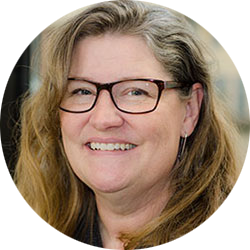
Carol Knox
Administrative Assistant to the Director and Associate Director, ICAM/MAG
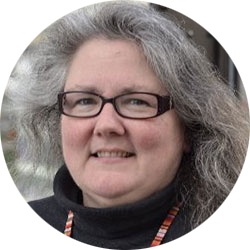
Carla Kohoyda-Inglis
Program Director, ICAM/UMPIRE
MPA
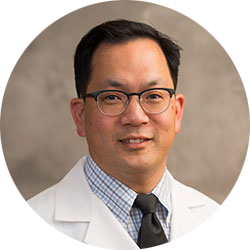
Richard Soon Young Kwon
Assistant Professor, Internal Medicine, University of Michigan
M.D.

Robert C. Lange

Kate Leary
Research Specialist
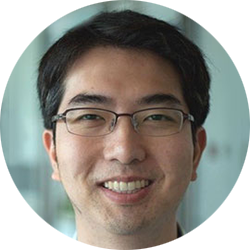
Honglak Lee
Assistant Professor, Computer Science and Engineering, University of Michigan
Ph.D.
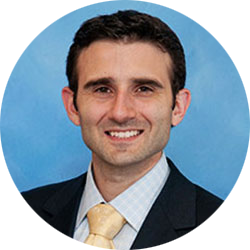
Benjamin Levi
Assistant Professor, Surgery, University of Michigan
M.D.
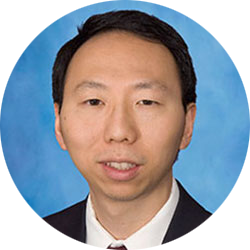
Jules Lin
Assistant Professor, Thoracic Surgery, University of Michigan; Surgical Director of the Lung Transplant Program
M.D.
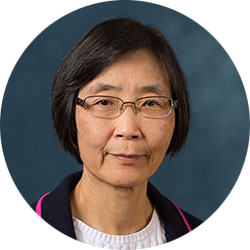
Anna Suk Fong Lok
Professor, Hepatology
M.D., FRCP, FAASLD, AGAF

Adrian K. Lund
Ph.D.

Joel MacWilliams
Crash Investigator, ICAM
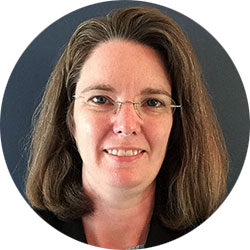
Barbra S. Miller
Assistant Professor of Surgery, University of Michigan
M.D.

Christopher O'Connor
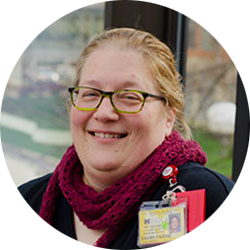
Sarah Parviz
Program Coordinator, Michigan State Burn Coordination Center, University of Michigan Health System Trauma Burn Unit

Michelle Pruszynski
Research Analyst, ICAM/MAG
RTR (R) (VI)
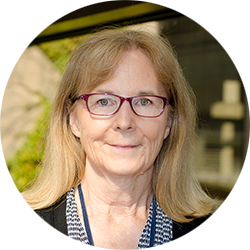
Anne Rammelkamp
Research Associate
R.N.

Brian Ross
Research Analyst, ICAM/MAG
(R)(CT)
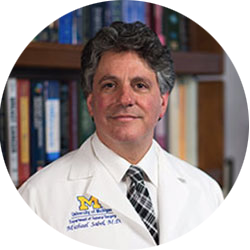
Michael S. Sabel
Associate Professor of Surgery; Chief of Surgical Oncology, University of Michigan
M.D., FACS
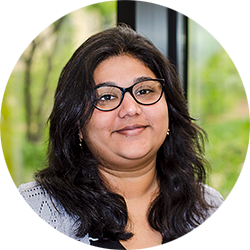
Nidhi Shah
Research Specialist, ICAM/MAG
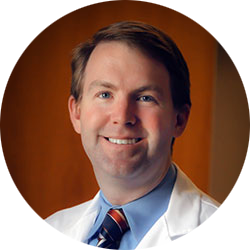
Ryan Stidham
Assistant Professor of Medicine, Division of Gastroenterology Inflammatory Bowel Disease Program
M.D., MSc
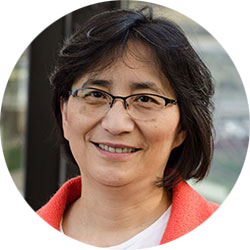
Grace L. Su
Associate Director for the Morphomic Analysis Group (MAG); Director of Orgonomics; Professor of Medicine and Surgery, University of Michigan
M.D.

June A. Sullivan
Managing Director, MAG
MBA
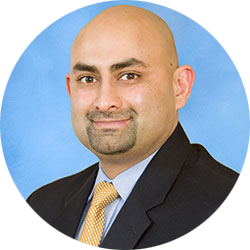
Akbar Waljee
Assistant Professor, Internal Medicine, University of Michigan
M.D.

Stewart C. Wang
Director of the Morphomic Analysis Group (MAG); Director of the International Center for Automotive Medicine (ICAM); Professor, Division of Acute Care Surgery; Director of Burn Surgery, University of Michigan
M.D., Ph.D.

Lu Wang
Associate Professor of Biostatistics, University of Michigan
Ph.D.

Nicholas Wang
Research Associate, MAG/ICAM
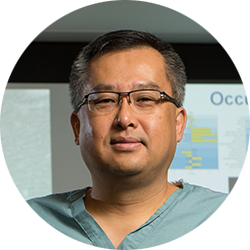
Stewart C. Wang
M.D., Ph.D.

Peng Zhang
Research Assistant Professor, University of Michigan
Ph.D.

David G. Beer
Professor of Surgery, Section of Thoracic Surgery, Professor of Radiation Oncology
Ph.D.
Dr. Beer received a Ph.D. in Biochemical Pharmacology from the University of Colorado at Boulder and pursued post-doctoral training at the McArdle Laboratory for Cancer Research, University of Wisconsin, Madison, WI. In 1991 he was recruited to the University of Michigan. Dr. Beer's laboratory interests are to determine the cellular and molecular events that are involved in the development and progression of human esophageal and lung cancer. By providing a greater understanding of the alterations that are associated with these diseases new insights into methods to detect these cancers early as well as identify potentially new approaches to treat patients with these cancers. We utilize the most modern and state of the art molecular technologies and approaches in our research on these diseases.

Terri Bollinger
Trauma Burn Unit, University of Michigan Health System (UMHS), ICAM
R.N.
Terri has been a nurse for 20 years at the UMHS. She also works for ICAM as a researcher. She received her BSN from the University of Michigan. She has presented a poster to the National Teaching Institute of the Association of Critical Care Nurses and has collaborated on several others. Currently, Terri is involved in several studies working with septic and diabetic patients at UMHS.

Edward Brown
Data Scientist, ICAM/MAG
Edward received degrees in Systems Engineering and Economics from the University of Virginia. Prior to coming to the University of Michigan, he worked as a systems engineer and an data scientist in projects raging from the tracking of antibiotic resistant bacteria to the prediction of hate crimes in Louisiana. He developed an expertise in spatial modeling while working on software which aided soldiers in Afghanistan and Iraq better understand the factors involved in road side bomb emplacement. He is passionate about leveraging insights from data to improve decision making and he helps researchers do that with the lab's Morphomics data.

Douglas P. Campbell
Mr. Campbell became President of Campbell & Campbell Consulting and acquired the Automotive Safety Council (ASC) as a long-term client in June 2008 upon retiring from TRW after 22 years. In his capacity at TRW as Vice President of Engineering for the Global Occupant Safety Systems, he oversaw all engineering activities for the inflatable restraint, seat belt, steering wheel, safety and security electronics, and lane keeping product lines with a budget of over $300 million and 2200 people. Mr. Campbell earned a Bachelor of Science degree in Mechanical Engineering from Kettering University. He holds a Master of Science degree in Engineering Design and Economic Evaluation from the University of Colorado and a certificate in International Business Studies from the American International Graduate School of Business. A Professional Engineer, Mr. Campbell has been chairman of various committees of the Automotive Safety Council, the Society of Automotive Engineers, American Management Association, and the International Association of Oil Drilling. He has earned TRW's Chairman Award for Innovation, Baker International Management Award, numerous patents, the Engineering Innovation of the Year Award from Petroleum International magazine and NHTSA's Special Appreciation Award for career contributions to auto safety. As President of the Automotive Safety Council (ASC), Mr. Campbell oversees all of the 40 member organization's activities which involves many roles, some of which include: governmental affairs contact to help educate US and State Congressional members about auto safety; replies to NHTSA rule making/questions; promotes the use of Active, Passive, Interior, and Child Safety; supports activities of other groups involved in auto safety; and coordinates ASC member technical committees including the annual 4 day global safety conference which features the premier auto safety leaders of the world.

Paul Cederna
Robert Oneal Professor of Plastic Surgery, Chief of the Section of Plastic Surgery, and Professor in the Department of Biomedical Engineering, University of Michigan
M.D.
By combining his clinical training in general surgery, microsurgery, and plastic surgery and background in biomedical engineering, he is able to incorporate creative solutions with technically challenging operations to solve the most difficult problems resulting from trauma, cancer, or burns. Dr. Cederna received his Bachelors of Science in Biomedical Engineering from the University of Michigan College of Engineering and his MD from the University of Michigan Medical School. Thereafter, he completed a residency in General Surgery and a fellowship in Microsurgery at the University of Iowa Hospitals and Clinics. He then returned to Ann Arbor, Michigan where he completed his Plastic Surgery Fellowship training at the University of Michigan Health System. He then completed two additional years of basic science research training as a postdoctoral research fellow within the Muscle Mechanics Lab of the at the University of Michigan. He has since joined the faculty at the University of Michigan where he has been a full time academic surgeon since 1999.

Andrew Chang
John Alexander Distinguished Professor; Associate Professor & Head, Section of Thoracic Surgery, University of Michigan
M.D.
Andrew C. Chang, M.D., is the John Alexander Distinguished Professor, Head of the Section of Thoracic Surgery at the University of Michigan. After completing his undergraduate education at the Massachusetts Institute of Technology and medical education at The Johns Hopkins University he pursued general surgical residency at Vanderbilt University. During this time he also obtained an individual National Research Service Award from the National Institutes of Health to study cardiothoracic transplantation with Richard N. Pierson, III, M.D. He then continued as a thoracic surgical resident and subsequently thoracic surgical fellow at the University of Michigan, completing these in 2003, before joining the faculty. His clinical interests encompass all aspects of general thoracic surgery including thoracic oncology, pulmonary transplantation, minimally-invasive surgery and interventional endoscopy. His research focus includes thoracic oncology, particularly studying the tumorigenesis of esophageal cancer, as well as studying patient-related outcomes following thoracic operations.
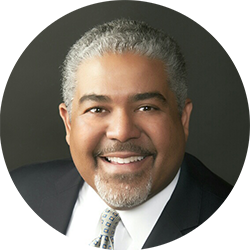
Robert D. Charles
With 25+ years of general management, strategic planning, and business development experience gained in the US, Canada, Europe, Latin America, and Far East, Mr. Charles serves as Chairman and CEO of North Star Advisors, LLC (NSA), a Strategic Management, Global Sourcing, and Growth-Stage Investment Company. NSA’s entrepreneurial approach employs Advanced Analytics, Lean Six-Sigma techniques, and Strategic Alliances to resolve mission-critical complexities and improve operational performance across multiple functional areas. Additionally, NSA has successfully launched or incubated various start-up ventures, including Lean Healthcare Organization (a Revenue Cycle Management Company), MarginXL Capital Partners (a middle-market Private Equity Fund), and MarginXL Advisors (a Business Management Consultancy). Prior to founding NSA, Mr. Charles served as the President of a nascent medical technology company, as the Executive Vice President of Global Financial Services at Ford Motor Credit Co., a partner of CSC Index, and the President of Advanced Device Corp. In addition to holding senior positions with Bain & Co., Exxon Corp., and Chase Manhattan Bank, he earned a Master's in Business Administration from Harvard University's Graduate School of Business, and a Bachelor of Arts from Dartmouth College.

Jill Cherry-Bukowiec
Assistant Professor of Surgery, University of Michigan
M.D.
Dr. Cherry-Bukowiec received her undergraduate degree from Miami University in Oxford Ohio and her medical degree from the University of Toledo. She completed her general surgery training at Eastern Virginia Medical School and went on to complete her clinical training in Acute Care Surgery and Surgical Critical Care, as well as obtained a master's degree in Clinical Research Design and Statistical Analysis, at the University of Michigan. She received her fellowship training in nutrition as a Nestle Enteral Nutrition Fellowship recipient. Dr. Cherry-Bukowiec is board certified in General Surgery, Surgical Critical Care, and in Nutrition by the National Board of Physician Nutrition Specialists. Dr. Cherry's clinical interests focus on Surgical Critical Care, Trauma, Non-Trauma Emergency and General Surgery. She is the Medical Director of the University of Michigan Trauma Burn ICU and provides surgical care for injured patients and patients with acute general surgery problems. She has a special interest in patients with severe infection and sepsis, and challenging nutrition problems. Dr. Cherry has a strong interest in clinical nutrition. She was a recipient of the Nestle Nutrition Institute Enteral Nutrition Fellowship. She serves on the National Board for Nutrition Physician Specialists representing the Society of Critical Care Medicine (SCCM). She is a Past-President of the Michigan Society for Parenteral and Enteral Nutrition and currently serves on the society's physician director. She is the founder of the Nutrition Advisory Committee for the University of Michigan Hospital and a currently acts as physician advisor for the committee. Dr. Cherry also has a strong interest in teaching medical students and residents. She is the Education Coordinator for the Division of Acute Care Surgery and Doctoring Faculty for the Medical School Doctoring Course. She is also the faculty lead for the new University of Michigan medical student curriculum M1 nutrition sequence.

Sung Won Choi
Assistant Professor, Pediatrics, University of Michigan
M.D.
Dr. Choi received her undergraduate degree from the University of Michigan and her medical degree from Wayne State University. She subsequently completed her training in Pediatrics at New York University followed by fellowship training in Pediatric Hematology Oncology at the University of Michigan. She is board certified in Pediatric Hematology Oncology and is faculty within the Blood and Marrow Transplantation Program at the University of Michigan. The major focus of her scholarly activity is in gaining new knowledge about clinical outcomes of patients undergoing hematopoietic cell transplantation (HCT), and leveraging innovative tools and techniques that could lead to safe health care and improved outcomes. Her clinical and research interests are in allogeneic HCT, particularly in the prevention of acute graft-versus-host disease (GVHD), a major complication that limits the more widespread application of allogeneic HCT.

Suzanne Cole
Ms. Cole is CEO of Miller Cole LLC, a management-consulting firm in Washington, D.C. specializing in legislative and regulatory affairs, advocacy and government funding for corporate technology R&D, and manufacturing. She is an expert in the development of successful integrated (product, regulatory, legislative) market strategies for industry. She has counseled corporate, nonprofit, and international clients on transportation, automotive safety, chemicals, energy, environmental, and public policy matters including state and federal regulatory and legislative issues. Ms. Cole chaired Global Automotive Safety Conferences for the Society of Plastics Engineers, which brought together automotive OEM, supplier executives, and engineers with medical and regulatory communities to discuss auto safety design, injury prevention, new materials applications, telematics, and electronic data recorders. She also served on numerous legislative committees at the state and federal levels: she was appointed by Governor Engler to the Michigan Broadband Development Authority; and served on the Resource Conservation and Recovery Act Revisions and Superfund Committees in Congress as well as the President's Export Council. She has testified before Congress on automotive safety, vehicle emissions and diesel technology and authored a white paper for the University of Michigan's Transportation Research Institute on Vehicle Recycling and End of Life of Vehicles. Formerly, Ms. Cole was the Vice President for Global Government Affairs (1996-1998) for the Ocean Group, PLC in London, England, wherein she led the global government and regulatory affairs effort, including U.S. Federal government relations, effectively established a global government interface capability, and served as the corporate representative to proactively shape and influence key policy actions critical to Ocean’s strategic objectives. She has a Bachelor's of Science from Michigan State University, a Master's of Business Administration from The University of Michigan, Ross Business School, and a Master's in Chemical Engineering from Wayne State University.

Missy Crain-Polly
Crash Investigator, ICAM
Missy brings a law enforcement background to the crash investigation team and most recently served as a sheriff’s deputy for a nearby county. Missy’s knowledge of traffic and crash related incidents offers numerous insights and a strong understanding of local law enforcement. Missy has a B.F.A. in Graphic Design from Western Kentucky University.

Kristen Cunningham
Technical Project Manager, ICAM
MPA
Kristen worked in local government in southeastern Michigan prior to coming to the University of Michigan. She was hired at the U in 2008 to manage a federal grant that assisted communities responding to automotive manufacturing decline in the auto belt states. Since then, she has continued her work with the University as a project manager for both technical and data collection/analysis projects. Kristen earned her B.A. from Michigan State University, James Madison College, in Political Theory & Constitutional Democracy, and a Master of Public Administration from Eastern Michigan University.

Brian Derstine
Data Scientist, Morphomics Analysis Group
M.S.
Brian received his B.A. from University of Chicago and his M.S. from University of California, Berkeley. Prior to coming to the University of Michigan, he worked in private industry for over 10 years as a data analyst, consultant, and project manager in consumer goods marketing research, internet marketing, and transportation software development. He specializes in R, Tableau, and SQL for data management, visualization, and analysis and helps to organize and shepherd the lab's clinical research projects from conception to publication.

Junia Doan
Junia Doan is the Producer/Interviewer of "Uncommon Sense with Junia", a biography program aired on regional PBS on Sundays. For 25 years she was a leader in programming and development for the Midland Matrix Festival, an annual Arts, Science and Humanities Festival in Midland, Michigan, MATRIX: Cinema, and Something New. She has also served on various boards including the Mackinac Center for Public Policy, The Population Reference Bureau, Washington, D.C., The Detroit Institute of Arts , Cranbrook Academy of Arts, Michigan Council for Humanities and Michigan Council for Arts & Cultural Affairs. A descendant of a pioneer Oklahoma family and a graduate of Barnard College, she worked in finance and fund management until she married her late husband, Herbert D. "Ted" Doan and moved to Midland, Michigan.Junia now resides in Midland and Manhattan.

Peter F. Ehrlich
Associate Professor, Pediatric Surgery, University of Michigan
M.D.
Dr. Ehrlich earned his medical degree from University of Toronto Faculty of Medicine. He completed his General Surgery residency at the University of Toronto. In addition he completed a Master of Science in Molecular Pathology form the Institute of Medical Sciences at the University of Toronto. He also completed a fellowship in Pediatric Surgery at Children's National Medical Center in Washington DC. After he completed his fellowship, Dr. Ehrlich spent 5 years at West Virginia University Children Hospital as the director of pediatric surgery. He came to Ann Arbor in 2003 and currently is an Associate Professor of Surgery. Dr Ehrlich's research focus on cancer and trauma in children.

Susumu Ejima
Research Associate Professor, University of Michigan
Ph.D.
He completed his doctorate in computational mechanics at Seikei University in Japan in 1997 and took post-doctoral fellowship from mechanical engineering at the UM from 1997 to 1998. Before joining UM as a faculty member, he has led Impact Biomechanics for 13 years and served as lead Principle Investigator of the development of the computer human model and oversee volunteer testing for studying crash safety at the Japan Automobile Research Institute. He served as group manager of crash safety from 2009 to 2014 during the realignment of the department's research portfolio for the future safety roadmap. He attempted to provide a role model for "Integrated Safety" vision by generating three research topics: the pre-crash, the crash, and the post-crash in the automobile traffic accidents. His research targets the study of biomechanics and the application of CAE (Computer Aided Engineering) to enhance understanding of injury mechanisms in motor vehicle crashes with real-world crash cases.

Binu Enchakalody
Research Software Engineer, MAG
M.S.
He received his Bachelors in Biomedical Engineering from Cochin University, India in 2000 after which he completed his M.S. with a thesis in Biomedical Engineering from Wright State University, Ohio in 2008. After graduation, he worked at iCAD, Inc. and Monsanto as an Image Processing Engineer before joining MAG in 2010. He actively collaborates with medical researchers and data experts to create automated and semi-automated tools to analyze and predict the variations in human and animal body structures.

Anne Fast
Level E Clinical Nurse, Michigan State Burn Coordination Center, University of Michigan Hospital, Trauma Burn Unit
R.N.
Anne received her RN diploma in 1984 from the Hurley School of Nursing and her BSN from the University of Michigan-Flint in 2004. She began her nursing career at Hurley Medical Center in 1984 working in the Neuro/Trauma unit. In 1988, she took the Oath of Office and became an officer in the United States Army Reserve. She was in charge of the DEPMEDS (Deployable Medical Systems) section of the 323rd Combat Support Hospital in which she was instrumental in designing, moving, and building a transportable hospital in the field of combat. She was awarded numerous medals for her training of the personnel for preparedness, and separated in 2001. She came to Trauma Burn Unit in 1999 as a staff nurse. From 2008 to 2012 she was Nursing Supervisor for the Trauma Burn Unit; she now splits her time between staffing and training. She has a passion for educating and when the opportunity arose to work with Dr. Wang and the State of Michigan Burn Disaster Plan she found her dream. Anne trains and educates personnel around the state in preparing for a disaster resulting in a large number of burn victims. She is active in the American Burn Association (ABA) Disaster SIG in which she is the co-chair. She has presented at local, state, and national level conferences regarding the State of Michigan Burn Plan.
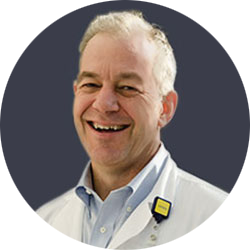
James Goulet
Service Chief; Professor, Orthopaedic Surgery, Trauma, University of Michigan
M.D.
Dr. Goulet has 28 years of experience as a surgeon and as a clinician- academician; he has a strong record of successful pre-clinical and clinical research programs. Currently, his efforts focus on clinical management and tracking of patients with fragility fractures, including establishment of complementary fragility fracture services and geriatric fracture services. His contributions to science have focused on clinically related areas. Initially, the focus was on the biomechanics of clinical fracture fixation. Based on the high variability of bone formation in clinical models of distraction osteogenesis, he became interested in creating a more predictably favorable environment for bone formation. Dr. Goulet worked with a team to develop a model to explore the relationship between bone formation and the mechanical environment to bone formation in distraction osteogenesis. Using microCT and mechanical testing, he demonstrated significant differences between bone formed under conditions of continual tension and bone formed during fracture healing, and reported on variations in bone formation related to the stability of external fixation and the pattern of bone distraction. Most recently, Dr. Goulet has been involved in using engineering segmentation applications to create high throughput analysis of CT scans to determine variability in bone shape and density. Each of the projects have been highly clinically oriented to answer specific and directed clinical questions. Our initial publications have studied the shape of the femur to aid in better design of femoral intramedullary implants and the shape of the sacrum to better determine safe pathways for placement of screws used for sacral fracture fixation.

Brianna Henderson
Research Area Specialist Associate, Pediatric Surgery
Brianna received her B.A. from the University of Michigan in May 2014. As an undergraduate, Brianna worked for ICAM as a Research Assistant and collaborated on various projects using Analytic Morphomics. After graduation, she worked as a Research Assistant at the University of Michigan-School of Public Health on the Household Influenza Vaccine Effectiveness (HIVE) study where she recruited eligible households to see how well the influenza vaccine worked in preventing influenza. Currently, Brianna is collaborating with Peter Ehrlich, M.D. MSc, on a study which looks at the injury patterns of children who have been in motor vehicle crashes by using Analytic Morphomics. Brianna is planning to pursue a Master's degree in Public Health to further her career in research in order to help make the world safer for generations to come.

Sven Holcombe
Crash Safety Engineer, ICAM/MAG
M.S.
Sven is currently completing his PhD in Biomedical Engineering. He received dual degrees in Engineering (Mechatronics) and Information Technology (Software Development) from the Australian National University in his hometown of Canberra, Australia. Sven's crash safety career began in Tsukuba, Japan, where he worked for four years in the impact biomechanics group at the Japan Automobile Research Institute, developing Finite Element Human Body Models for predicting injuries that a person may sustain during a car crash. Since moving to Michigan in 2008, Sven has developed the University of Michigan's Morphomics Analysis System, which takes measurements of body size and shape from CT scans along with precise measures of bone, muscle, and fat composition. His own research then uses this data to describe how we all differ as individuals of a larger population, in ways that are used both by engineers to improve car safety systems and doctors to improve surgical care and treatment outcomes.

Eunjoo Hwang
Research Specialist, ICAM/MAG
Eunjoo has both a Masters degree in Mechanical Engineering and an interdepartmental Doctoral degree in Biomedical Engineering and Kinesiology from the University of Michigan. She collaborated with clinicians in the Department of Orthopedics for her doctoral degree, and co-worked with automotive industry professionals for her post-doctoral fellowship. As a postdoctoral research fellow, Eunjoo worked in the Biosciences Group at the University of Michigan Research Transportation Institute (UMTRI). Her current areas of expertise are in constitutive modeling of the musculoskeletal bone and soft tissue, orthopedic bio-mechanics, injury mechanics, and computational mechanics. Currently, Eunjoo is working on the development of an elderly human body model based on the population-based morphomic data, and is studying on femur and rib bone to use the current morphomic data for biomechanical research.

Carol Knox
Administrative Assistant to the Director and Associate Director, ICAM/MAG
Carol has recently returned to the University of Michigan after a long hiatus that included raising children and a stint in the fiber arts industry. After obtaining a degree in Russian Language and Literature at Oklahoma State University in 1990, Carol came to work at the University of Michigan in the Reproductive Sciences Program in 1992.

Carla Kohoyda-Inglis
Program Director, ICAM/UMPIRE
MPA
Carla received a Master's of Public Administration from the Gerald R. Ford School of Public Policy at the University of Michigan in 2006. She has worked in the field of crash research since 1997 and is a valuable member of the University of Michigan Program for Injury Research and Education (UMPIRE) team.

Richard Soon Young Kwon
Assistant Professor, Internal Medicine, University of Michigan
M.D.
Dr. Kwon received his medical degree from UCLA and a Masters in Science (Clinical Research Design and Statistical Analysis) from the University of Michigan. He is an interventional endoscopist and pancreatologist. His research centers around the application of novel technology to improve the care of patients with pancreatic disease, including cystic neoplasms, pancreatic cancer, and acute and chronic pancreatitis.

Robert C. Lange
Mr. Lange is a Principal and the Corporate Vice President for Exponent. He holds numerous affiliations and advisory appointments along with being published on a vast array of subjects. Mr. Lange has almost 40 years experience in automotive engineering, specializing in motor vehicle safety and public health. Of the hundreds of areas Mr. Lange has expertise, the following specialties show the breadth and depth of his knowledge base: safety technology development and insertion patterns; collision causal factors and collision typology; collision and injury risk assessment; occupant performance; owners' manuals and warnings; vehicle dynamics, responsiveness, and control; tire and wheel systems; chassis systems and collision avoidance; rollover vehicle dynamics, occupant kinematics, and injury mechanisms; autonomous sensor-based and cooperative wireless collision avoidance technologies; dynamic collision response for vehicles and occupants in planar and rollover events; occupant protection technologies; inflatable restraint sensor system design, performance, and specifications; fire cause, origin, and propagation; fuel system design and performance; post-collision performance and response; non-collision injury mechanisms; policy approaches to motor vehicle safety; and defect investigations.

Kate Leary
Research Specialist
In April 2017, Kate graduated from the University of Michigan. She received a Bachelor of Science in Philosophy, reflecting her love of both science and the humanities. During her junior and senior years at Michigan, Kate was a student research assistant for the Morphomics Analysis Group. Under the direction of Dr. Barbra Miller, Kate processed hundreds of scans to help with the identification of morphomic markers for adrencortical cancer patients. Now Kate works full-time for the MAG lab, where she will continue processing CT scans while aiding in the integration of morphomics into the clinical setting. Kate hopes to attend medical school in the fall of 2018, but in the mean time she enjoys learning all she can from the medical research setting the ICAM/MAG lab provides.

Honglak Lee
Assistant Professor, Computer Science and Engineering, University of Michigan
Ph.D.
Dr. Lee received his Ph.D. from Computer Science Department at Stanford University in 2010, advised by Prof. Andrew Ng. His primary research interests lie in machine learning, which spans over deep learning, unsupervised and semi-supervised learning, transfer learning, graphical models, and optimization. He also works on application problems in computer vision, audio recognition, robot perception, and text processing. His work received best paper awards at ICML (2009) and CEAS (2005). He has served as a guest editor of IEEE TPAMI Special Issue on Learning Deep Architectures, as well as area chairs and senior program committee of ICML, NIPS, IJCAI, and ICCV. He received the Google Faculty Research Award in 2011, and was selected by IEEE Intelligent Systems as one of AI's 10 to Watch in 2013.

Benjamin Levi
Assistant Professor, Surgery, University of Michigan
M.D.
Dr. Levi completed his undergraduate education at Washington University, medical school at Northwestern University and Plastic and Reconstructive Surgery residency at the University of Michigan. During this time he completed a 2 year post-doctoral research fellowship at Stanford University. He recently completed a fellowship in Burn and Surgical Critical Care at Massachusetts General Hospital. Benjamin has been involved in Burn research since High School when given the opportunity to work in the Burn Laboratory of Richard Gamelli MD and Luisa DiPietro DDS, PhD. Subsequently, and for three consecutive summers, he worked in the Burn and Shock Trauma laboratory of Dr. Gamelli and Dr. Luisa DiPietro with a focus on wound healing and inflammation. Inspired by this experience, he remained active in research throughout medical school and residency and he dedicated two years of additional training to do a basic science research fellowship in stem cell biology and bone tissue engineering at Stanford University under Dr. Michael Longaker. During this time, he focused on basic stem cell biology, mesenchymal stem cell (MSC) osteogenesis, and bone tissue engineering. Since returning to the University of Michigan, Dr. Levi has founded the Burn/Wound and Regenerative Medicine Laboratory along with Dr. Wang. This lab has focuses on the significant clinical problem of heterotopic ossification. Specifically, Dr. Levi has developed new animal models to study this complex process and is working to improve early diagnostic and treatment modalities.

Jules Lin
Assistant Professor, Thoracic Surgery, University of Michigan; Surgical Director of the Lung Transplant Program
M.D.
Dr. Lin was a Phi Beta Kappa graduate of Indiana University and received his undergraduate degree with highest distinction in 1995. He ceceived his medical degree from Harvard Medical School in 1999 and completed his General Surgical Residency in 2006 at the University of Michigan. During this time, he also completed a Surgical Critical Care Fellowship in 2003 and a research fellowship in the Thoracic Surgery Tumor Biology Laboratory in 2004 for which he received the Moses Gunn Young Investigator and James Crudup Awards. He completed his Cardiothoracic Surgery Residency at the University of Washington. Dr. Lin specializes in general thoracic surgery and is interested in the treatment of lung and esophageal cancer, minimally-invasive approaches, atracheobronchial resection and reconstruction, sympathectomy for hyperhidrosis, and lung transplantation. His research interests include investigating the molecular biology of esophageal and lung carcinoma and translating these findings into new techniques for screening, staging, and tailoring therapies for individual patients. He is also interested in using morphometric analysis of preoperative chest CT scans to identify CT characteristics that are associated with outcomes after lung transplantation as well as pulmonary and esophageal resection for cancer.

Anna Suk Fong Lok
Professor, Hepatology
M.D., FRCP, FAASLD, AGAF
Dr. Lok obtained her medical degree from University of Hong Kong and hepatology training at the Royal Free Hospital in London under the late Dame Sheila Sherlock. She was a faculty at the University of Hong Kong until she moved to the United States in 1992. Her research focus on natural history and treatment of hepatitis B and C. She has published more than 400 papers on viral hepatitis and liver diseases including the American Association for the Study of Liver Diseases (AASLD) guidelines on "Hepatitis B". She was one of the top 1% most cited researchers in the world for the period 2002-2012. Dr. Lok has received many awards throughout her career including the Distinguished Scientist Award from the Hepatitis B Foundation and the Distinguished Women Scientist Award from the American Gastroenterological Association in 2008, the Distinguished Service Award from the AASLD in 2011, and the Distinguished Scientific Achievement Award from the American Liver Foundation in 2015. She served as Associate Editor of HEPATOLOGY in 2002-6, co-Editor of Journal of Viral Hepatitis in 2007-9 and a Senior Associate Editor of GASTROENTEROLOGY in 2011-2012. Dr. Lok is the Director of Clinical Hepatology and Associate Chair for Clinical Research in the Department of Internal Medicine at the University of Michigan. She is currently President-Elect of the AASLD.

Adrian K. Lund
Ph.D.
Dr. Lund is President of the Insurance Institute for Highway Safety (IIHS) and its affiliate, the Highway Loss Data Institute (HLDI). Dr. Lund earned his doctoral degree in Social Psychology from the State University of New York at Buffalo in 1975 and served as an assistant professor in Residence in the Department of Behavioral Sciences and Community Health at the University of Connecticut Health Center from 1974 to 1981. Since joining IIHS as a Behavioral Scientist in 1981, Dr. Lund's research has spanned the range of driver, vehicle, and roadway factors involved in the safety of motor vehicle travel. As Senior Vice President for Research from 1993 to 2001, he directed the development of the Institute's extensive vehicle testing program. Throughout his career at IIHS, Dr. Lund has participated in a number of government and non-governmental committees addressing ways to reduce the injuries, fatalities, and property damage from motor vehicle crashes. Currently, he serves as: a trustee for the Global New Car Assessment Programme (Global NCAP); an external advisory board member for the University of Michigan's Transportation Research Institute (UMTRI); and an advisor on the National Advisory Committee for the University of Wisconsin's Active Aging Research Center (AARC).

Joel MacWilliams
Crash Investigator, ICAM
Joel has been conducting research on automobile crashes for the past 36 years. He spent the first 15 years working as a contractor to the National Highway Traffic Safety Administration (NHTSA) as a field investigator, trainer, quality control specialist, and special investigator. He has been with the University of Michigan for the past 21 years working with physicians, EMTs, nurses, educators, and engineers who are researching injury causation/impact biomechanics and vehicle-based countermeasures in order to reduce or eliminate the injurious effects of motor vehicle crashes. Joel has vast experience in automobile collision dynamics, occupant kinematics, vehicle safety systems performance and effectiveness. Joel is currently the senior crash investigator at ICAM and works cooperatively with the Washtenaw County Medical Examiner's Office.

Barbra S. Miller
Assistant Professor of Surgery, University of Michigan
M.D.
Dr. Miller received her medical degree from the University of Cincinnati College Of Medicine and went on to complete both an internship and a residency in general surgery at University of Texas Southwestern in Dallas, Texas. Dr. Miller was the First Norman W. Thompson, M.D., Fellow in Endocrine Surgery at University of Michigan. She then served as Assistant Professor in the Endocrine Surgery Division at the University of Texas Health Science Center in San Antonio before re-joining the University of Michigan Department of Surgery in 2007. Her entire practice is focused on endocrine surgery. She is a member of the multidisciplinary endocrine oncology team.

Christopher O'Connor
Mr. O'Connor joined First Technology Safety Systems in 2007 as President & CEO, later named, Humanetics Innovative Solutions, Inc. During the last three years, Mr. O'Connor tripled the size of the business, developed several new products, improved operational performance, and generated profitable growth. Humanetics is the worldwide leader in its related safety & crash test markets. Mr. O'Connor is also the President & CEO of Safety Technology Holdings (STH) the parent company to Humanetics and HITEC, a high tech engineering services company. Mr. O'Connor started his leadership career in the U.S. Army and he currently continues to serve as a senior officer (Colonel) in the U.S. Army Reserves. Prior to Humanetics, Mr. O'Connor was at Morningside, a private investment group owning companies in the fields of automotive, medical, industrial, and advanced technology. From 1999 to 2007, he was President & CEO of Prospects Corp., an innovative sensor company with convenience and safety related products for the automotive marketplace. Mr. O'Connor received his Bachelor of Science in Electrical Engineering, and Master of Science in Mechanical & Manufacturing Engineering from Syracuse University. He is a graduate of the GE Advance Course, GE Crotonville Course, U.S. Army Command & General Staff College, and has completed Executive Management courses at Harvard and the prestigious Executive Program at the University of Michigan. Mr. O'Connor is the 2012 recipient of Ernst & Young's prestigious Entrepreneur of the Year 2012 Award as winner for Michigan & Northwest Ohio.

Sarah Parviz
Program Coordinator, Michigan State Burn Coordination Center, University of Michigan Health System Trauma Burn Unit
Sarah provides the Unit with clinical administrative support, assisting Dr. Wang in his organizational, educational, and quality assurance efforts as the Burn Director. Sarah is also involved in Dr. Wang's projects with the Plain Community, and assists with the UMHS Burn Unit's outreach, research, and education efforts. She also participates in various ICAM and MAG research endeavors. Sarah, an Ann Arbor native, graduated from the University of Michigan in 1991 with a degree in History.

Michelle Pruszynski
Research Analyst, ICAM/MAG
RTR (R) (VI)
Michelle graduated from Washtenaw Community College in 2012, and earned licensure with the American Registry of Radiologic Technologists in two specialties- Radiography and Vascular-Interventional. She went on to complete her B.S. in Health Care Administration from Siena Heights University in 2015. Michelle has worked for Michigan Medicine Radiology for over ten years and brings clinical experience and expertise to the lab's various research projects.

Anne Rammelkamp
Research Associate
R.N.
Anne has a BS in nursing from University of Michigan and a BA in French from Michigan State University. She has a background in public health and medical education, but specifically brings to our team many years of experience in medical record data abstraction, medical transcription and medical record auditing. Just prior to joining our team, she worked on two statewide clinical quality initiatives coordinated by the University of Michigan in the fields of breast cancer and hereditary cancer genetic mutations.

Brian Ross
Research Analyst, ICAM/MAG
(R)(CT)
Brian started his position with ICAM and MAG in 2015. He graduated from Michigan State University with a B.S. degree in physiology in 2003 then earned licensure with the American Registry of Radiologic Technologists via an AAS degree from Lansing Community College in 2006. After working for two years in the University of Michigan Health System's General Imaging department, Brian transferred to the Computed Tomography department where he worked as a technologist for seven years. Brian brings his hands-on experience operating CT scanners to a field where CT scan images are used as a source of information for various research projects.

Michael S. Sabel
Associate Professor of Surgery; Chief of Surgical Oncology, University of Michigan
M.D., FACS
Dr. Sabel is the Chief of Surgical Oncology at the University of Michigan. He received his undergraduate degree at Pennsylvania State University and his medical degree from Temple University School of Medicine in Philadelphia. He completed his general surgery training at Rush-Presbyterian-St. Luke's Medical Center and then completed a research fellowship in tumor immunology/immunotherapy and surgical oncology fellowship at Roswell Park Cancer Institute in Buffalo, NY. Dr. Sabel joined the faculty of University of Michigan in 2001. Dr. Sabel's clinical interests are in the area of surgical oncology, with special expertise in breast cancer and melanoma. Dr. Sabel's research interests focus on the immune response to cancer cell death, particularly after cryoablation (freezing) of cancer, and he is an internationally recognized expert in the field of cryo-immunology. Dr. Sabel's lab is also focused on the identification of prognostic and predictive markers in oncology, using both serum proteomic and tissue microarray approaches, to help guide surgical and adjuvant therapy. He is particularly interested in the use of morphomics for this purpose, particularly the prediction of both response and toxicity associated with biologic therapies. In addition to his clinical and basic science interests, Dr. Sabel has strong clinical interests in the use of mobile technologies to improve patient-physician communication and improve outcomes. He is the creator of two present apps; UMSkinCheck for self skin exam and early melanoma detection, and BreastCancerAlly, a mobile patient navigator app for patients with breast cancer, with several more in development.

Nidhi Shah
Research Specialist, ICAM/MAG
Nidhi completed her Bachelors in Biomedical Engineering from Ganpat University, India and Masters in Biomedical Engineering with specialization in Biomechanics from New Jersey Institute of Technology, Newark, New Jersey. She has worked closely in the field of business research and entrepreneurship development in the life science industry back in India. After completion of her Masters, she worked at the University of Toedo researching on the biomechanical testing and analysis. She brings in biomedical research and project management experience to the department’s various research projects.

Ryan Stidham
Assistant Professor of Medicine, Division of Gastroenterology Inflammatory Bowel Disease Program
M.D., MSc
Dr. Stidham received his medical degree from the university of Virginia, completed training in Internal Medicine at the University of Pennsylvania. He was a a NIH T-32 fellow in Gastroenterology at the University of Michigan. Dr. Stidham holds a Master's degree in Clinical Research Design and Statistical Analysis from the University of Michigan School of Public Health. His research focus is the development of tools to predict the expected degree of therapeutic response and the probability of avoiding intestinal surgery in Crohn's disease and ulcerative colitis. He has received funding from the National Institutes of Health, the Crohn's and Colitis Foundation of America, the Broad Foundation, and several industry-sponsored grants.

Grace L. Su
Associate Director for the Morphomic Analysis Group (MAG); Director of Orgonomics; Professor of Medicine and Surgery, University of Michigan
M.D.
Dr. Su received her undergraduate degree from Yale University and her medical degree from the University of Chicago, Pritzker School of Medicine. After completing her internal medicine residency and gastroenterology fellowship at the University of Pittsburgh in 1994, she was a faculty member until she moved to the University of Michigan. Dr. Su also has a part time appointment at the University of Michigan affiliate, VA Ann Arbor Healthcare System, where she is the Associate Chief of Medicine for Subspecialty Care and Access as well as Chief of the Gastroenterology Section. She is the Director of the Ann Arbor Specialty Care Access Network- Extension of Community Healthcare Outcomes (SCAN-ECHO) program, a transformational initiative which leverages technology to improve liver subspecialty care delivery within the VA healthcare system, particularly to underserved and rural areas. In addition to her 25 years of investigating innate immune system interactions with the liver, Dr. Su has also had a long-standing research interest in non-invasive methods of assessing liver fibrosis and disease. She has developed methods of quantitative image analysis (Analytic Morphomics) for assessing body composition and organ measurements from CT scans. By linking the morphological data to clinical outcomes, she has developed highly accurate non-invasive methods for the diagnosis and prognosis of liver disease as well as other gastrointestinal diseases.

June A. Sullivan
Managing Director, MAG
MBA
She has a Bachelor's of Fine Art in photography, a Bachelor's of Science in psychology, and a Master's of Business Administration from California State University. June has 20+ years' experience managing technical and research projects in both higher education and the private sector. She has been an integral part of the MAG team since its inception, is a certified project manager, and has spent the last 7 years focused on research associated with morphomics.

Akbar Waljee
Assistant Professor, Internal Medicine, University of Michigan
M.D.
Dr. Waljee received his MD from Emory University and holds a Masters in Health and Health Care Research from the UM Robert Wood Johnson Masters Program. He has conducted research on the management of medical and surgical therapies in inflammatory bowel disease, the quality of life issues faced by those with these chronic conditions, and the use of novel machine learning techniques as decision support systems.

Stewart C. Wang
Director of the Morphomic Analysis Group (MAG); Director of the International Center for Automotive Medicine (ICAM); Professor, Division of Acute Care Surgery; Director of Burn Surgery, University of Michigan
M.D., Ph.D.
Dr. Wang is the First Endowed Professor of Burn Surgery. He received an AB in History of Science and Medicine from the Yale College before going on to complete his MD at the University of Chicago. He also earned a PhD in Molecular Immunology at the University of Pittsburgh during his general surgical residency training. He joined the University of Michigan faculty in 1995. His clinical expertise is in the areas of general surgery, acute care surgery, trauma, and burns. Dr. Wang is Director of Burn Surgery at the University of Michigan's ABA-verified Burn Center and Director of the State of Michigan Burn Coordinating Center for Mass Casualty Incidents. The UM Burn Center's injury prevention programs are internationally recognized. Dr. Wang's basic science laboratory investigates innate immune mechanisms in injury and wound healing. He served as Associate Chairman for Research in the Department of Surgery from 2002-2007. Since 1997, Dr. Wang has hosted a monthly neutral forum in which a multidisciplinary group of medical, engineering, policy, and biomechanical experts forensically analyze real-world motor vehicle crash cases to assess injury causation mechanisms and determine potential measures to prevent such injuries in the future. As southeast Michigan is the global epicenter for automotive engineering, regular attendees of these forums include engineers from all major international automotive manufacturers as well as suppliers of automotive safety systems. In partnership with multiple public safety agencies around Michigan and automotive manufacturers from around the world, Dr. Wang recently established the Vulnerable Road User Injury Prevention Alliance (VIPA).

Lu Wang
Associate Professor of Biostatistics, University of Michigan
Ph.D.
Dr. Wang received her Ph.D in Biostatistics from Harvard University in 2008 and joined the faculty at the University of Michigan in the same year. Dr. Wang's research focuses on statistical methods for evaluating dynamic treatment regimes, personalized health care, nonparametric and semiparametric regressions, missing data analysis, functional data analysis, and longitudinal (correlated/clustered) data analysis. She has joined the Morphomic Analysis Group since 2010, and has been working on various projects related to morphomics data analysis.

Nicholas Wang
Research Associate, MAG/ICAM
He received his B.S. in Chemistry from Yale University in 2013, and began working at the U of M. While at Yale, Nick worked as a student tech, fixing computers, as well as building websites. In his spare time, he volunteers as an Academic Games coach for Clague Middle School; teaching kids how to creatively approach math, language and social studies.

Stewart C. Wang
M.D., Ph.D.
Dr. Wang is First Endowed Professor of Burn Surgery at the University of Michigan. He received his undergraduate education at Yale College and his M.D. at the University of Chicago Pritzker School of Medicine. He subsequently completed his surgical residency as well as a Ph.D. in immunology at the University of Pittsburgh before joining the University of Michigan faculty in 1995. Dr. Wang serves as Director of the University of Michigan Burn Center as well as the State of Michigan Burn Coordinating Center. He is the Founding Director of the multidisciplinary University of Michigan Program for Injury Research and Education (UMPIRE) as well as the International Center for Automotive Medicine (ICAM). For the past seventeen years, Dr. Wang has coordinated efforts to utilize the University of Michigan's extensive medical resources in support of improved understanding of the mechanisms by which injuries are caused during motor vehicle crashes. Through collaborative case reviews, medical specialists, policy makers and engineers have jointly achieved a deeper understanding of the mechanisms of injury causation as well as potential ways to prevent such injuries from occurring. He has established a fellowship program to train engineers in the interpretation of real life medical crash data and to facilitate the practical application of this data toward engineering improvements in vehicle safety design. He has also established several educational programs targeted toward rescue personnel and medical professionals to improve post-injury care. Dr. Wang's research is centered on injury. His basic science research focuses on local tissue responses to injury, burns, and infection. His clinical research focuses on utilizing high throughput analysis of body composition characteristics (Analytic Morphomics) to assess patient fragility and frailty. Dr. Wang has been continuously funded by the NIH since 1990 and currently holds funding from three institutes from the NIH as well as funding from the U.S. Departments of Transportation and Defense. Active areas of research investigation include: 1) immunologic responses following burn injury, 2) gene therapy modulation of immune responses to infection, 3) mechanisms of lung injury following trauma, and 4) mechanisms of motor vehicle crash injury.

Peng Zhang
Research Assistant Professor, University of Michigan
Ph.D.
Dr. Zhang received his undergraduate degree in Mathematics from Peking University in Beijing, China, and his doctoral degree in Biostatistics from Harvard University. His primary research interest is to design personalized treatment decision support and strategies through Analytic Morphomics. Dr. Zhang has investigated the associations between morphomic fat measures and a number of clinical outcomes, and has consistently found that morphomic fat measures are better risk markers compared to routine demographics in revealing the heterogeneity of patient population. His past work includes studies of injuries in motor vehicle crashes, surgical site infections in hernia repair, and musculoskeletal quality degradation due to fat infiltration. Currently, he is extending his research to the area of type-2 diabetes and non-alcoholic fatty liver disease.
